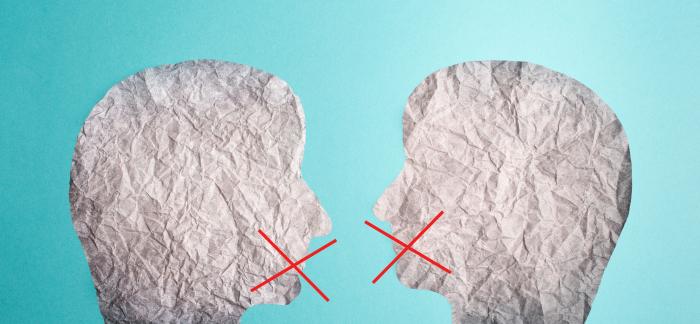New Survey Sheds Light on Middle East Scholars' Discomfort Discussing their Work
Since February 2021, the Anwar Sadat Chair for Peace and Development has worked with George Washington University’s Project on Middle East Political Science to publish a biannual Middle East Scholar Barometer tracking experts’ opinions on timely issues.
Amid heated debates about the Israel-Gaza war, the Barometer’s latest survey centered on scholars’ self-censorship; specifically, whether scholars feel the need to censor themselves when talking about the Middle East in an academic or professional setting, and the reasons behind self-censorship.
Of the November 10-17, 2023 poll’s 936 respondents—from members of the Middle East and North Africa section of the American Political Science Association, the Middle East Studies Association, the American Historical Association’s Middle East scholars, and contacts of the Project on Middle East Political Science—82% of respondents in the United States said that they feel the need to self-censor when speaking about the Palestinian-Israeli issue in an academic or professional setting. Seventy-two percent said they have experienced a greater need to censor themselves since the October 7, 2023 start of the Israel-Gaza war.
Broken down by respondents’ position at their U.S. institution, 98% of assistant professors said that they feel the need to self-censor when speaking about the Palestinian-Israeli issue, followed by 95% of graduate students, 88% of associate professors, and 76% of professors.
“Although we were expecting self-censorship among scholars to be an issue when speaking about the Israeli-Palestinian conflict, we were surprised by the degree to which scholars feel that way, especially in light of the Israel-Gaza war,” said Shibley Telhami, the Anwar Sadat Chair for Peace and Development and professor of government and politics who co-directs the Barometer.
A significant difference was observed in the topics that the U.S.-based respondents felt they needed to censor the most: 81% said they feel the need to self-censor criticism of Israel, compared to 11% who said they feel the need to self-censor criticism of Palestine. Only 2% said they felt the need to self-censor criticism of U.S. policy.
Why do U.S.-based scholars feel the need to censor themselves in this way in academic or professional settings? According to the survey, the majority of U.S.-based respondents attributed their self-censorship to “concerns about the campus culture or offending students” (60%) and “concerns about pressure from external advocacy groups” (53%).
Roughly four in 10 U.S.-based respondents said that they felt the need to censor themselves because of “concerns about discipline from academic administrators.”
Additionally, just over half of respondents said that anti-Palestinian sentiment was a lot/somewhat prevalent in their institution, compared to 36% said the same about anti-Israeli sentiment. About 41% said anti-Muslim sentiments were prevalent, compared to 18% who said the same about antisemitism.
“We also gave the scholars the ability to write in feedback, and we were really shocked by how many people wanted to provide examples [of their concerns],” said Telhami in a Dec. 12, 2023 event featuring Dean Amaney Jamal of the School of Public and International Affairs at Princeton University, Dean Keren Yarhi-Milo of the School of International and Public Affairs at Columbia University, and Hina Shamsi Director of the National Security Project at the American Civil Liberties Union.
Professors Telhami and Lynch noted in a Chronicle of Higher Education op-ed about the Barometer, “Sometimes, Middle East scholars act as their own source of self-censorship. Respondents complain of a professional culture in which their colleagues demand that they take sides, at the risk of professional ostracism. Graduate students especially report keeping quiet to avoid affecting their job prospects. Such silencing and enforced conformity stifles scholarship when it closes down lines of inquiry, prejudges the correct answers to difficult questions, or blurs the line between academic rigor and activism.”
View the full survey questionnaire
Illustration is by iStock
Published on Wed, Dec 13, 2023 - 3:49PM




